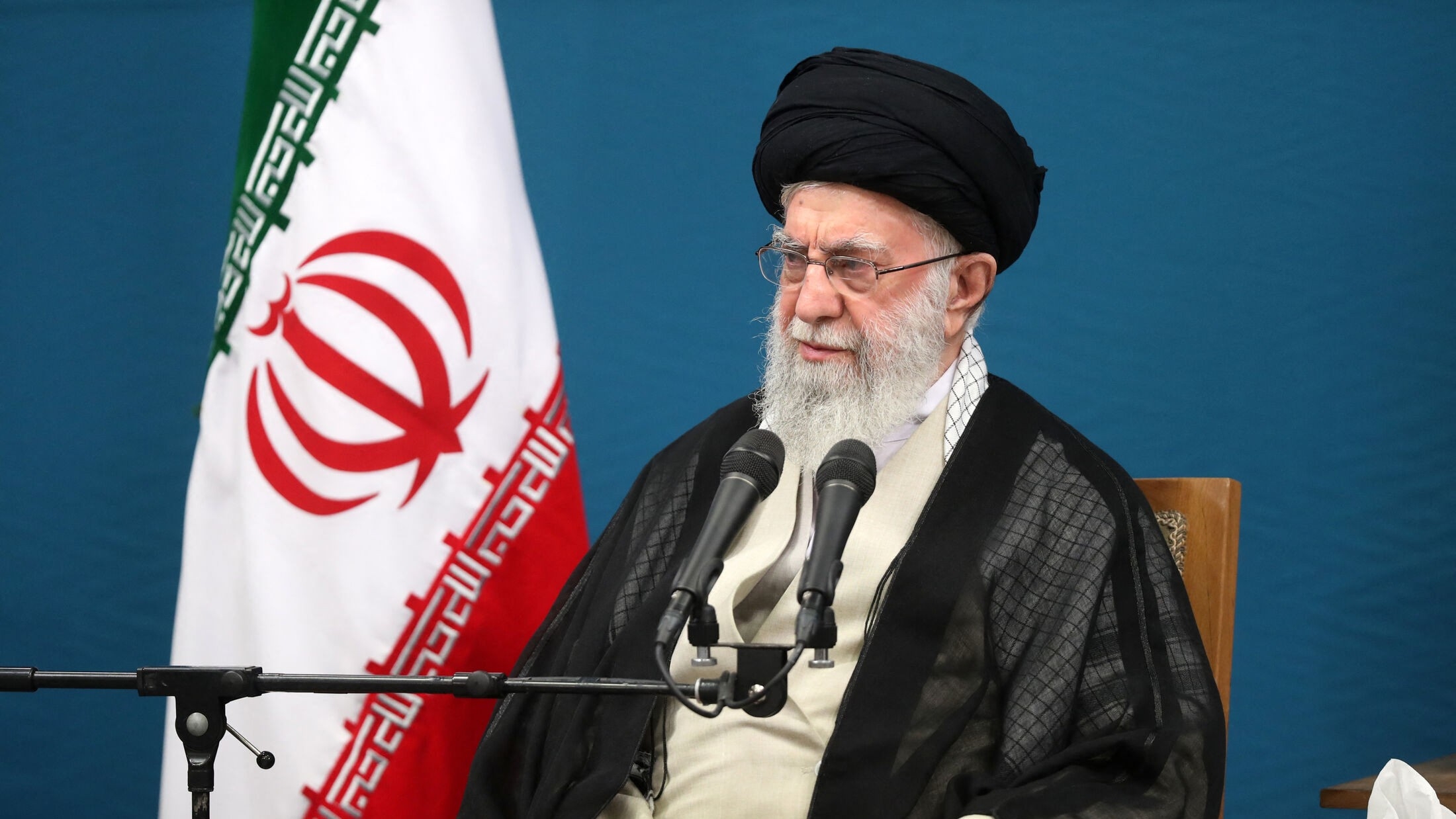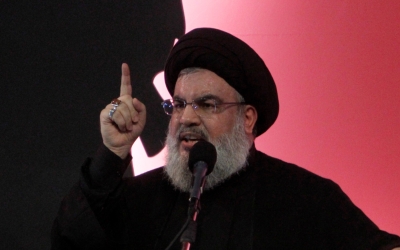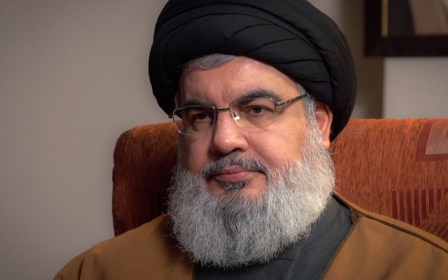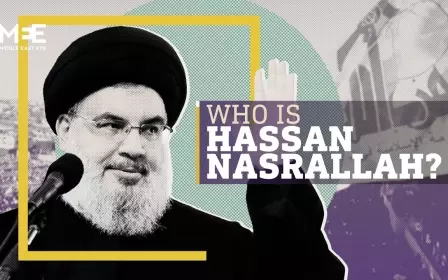Iran's Khamenei calls on Muslims to confront Israel in first comments after Nasrallah killing

Iran's Supreme Leader, Ayatollah Ali Khamenei, called on Muslims to stand by the people of Lebanon and assist Hezbollah in confronting the "wicked regime [of Israel]", shortly after the Israeli army reported it had killed the movement's long-serving leader, Hassan Nasrallah.
In a statement published on his official website on Saturday, Khamenei did not mention Nasrallah by name but began by condemning the killing of "the defenceless people of Lebanon", saying "it proved the short-sightedness and foolish policies of the leaders" of Israel.
Israeli "criminals must know that they are far too small to cause any significant damage on the strongholds of Hezbollah in Lebanon," Khamenei said, adding: "All the resistance forces in the region support and stand alongside Hezbollah."
He also urged Muslims to stand alongside the people of Lebanon and Hezbollah and support them in "confronting the usurping and wicked regime."
New MEE newsletter: Jerusalem Dispatch
Sign up to get the latest insights and analysis on Israel-Palestine, alongside Turkey Unpacked and other MEE newsletters
"The fate of this region will be determined by the forces of resistance, with Hezbollah at the forefront," he added.
Earlier on Saturday, the Israeli army reported it had killed Nasrallah a day earlier when it launched a series of massive air strikes on the Lebanese capital Beirut.
Israeli fighter jets fired approximately ten bunker-busting bombs at residential buildings in the southern neighbourhood of Dahiyeh on Friday, with footage seen by Middle East Eye showing thick plumes of smoke emerging from the blast site.
The Israeli army posted a message on X, saying, "Hassan Nasrallah will no longer be able to terrorise the world."
'His eminence, the master of resistance, the righteous servant, has passed away to be with his lord who is pleased with him as a great martyr'
- Hezbollah statement
Meanwhile, the Arabic spokesman of the Israeli army, Avichay Adraee, said that Nasrallah was killed along with a number of other commanders, including Ali Karki, the commander of Hezbollah's southern front.
"The message is clear: We will reach everyone who threatens the citizens of Israel in the north, in the south, and on more distant fronts," Adraee said.
Hezbollah later confirmed the killing, saying in a statement: "His eminence, the master of resistance, the righteous servant, has passed away to be with his lord who is pleased with him as a great martyr.
"The leadership of Hezbollah pledges... to continue its jihad in confronting the enemy [Israel], supporting Gaza and Palestine, and defending Lebanon and its steadfast and honourable people."
The statement did not mention who would succeed Nasrallah, or how the group would respond to the assassination of its long-time leader.
Citing two Iranian officials, the New York Times reported on Friday that Khamenei had called an emergency session of Iran's Supreme National Security Council at his home in response to the strikes.
On Saturday, Reuters reported that Khamenei had been transferred to a secure location inside Iran with heightened security measures in place.
Two regional officials told Reuters that the Islamic Republic was in constant contact with Hezbollah and other regional groups to determine their next steps.
One of the most prominent figures in the Iran-led "Axis of Resistance," Nasrallah had headed Hezbollah since 1992, after his predecessor, Abbas al-Musawi, was killed in an Israeli air strike.
According to analysts, the man widely regarded as being Nasrallah's heir, Hashem Safieddine, was still alive after Friday's attack.
Safieddine, who oversees Hezbollah's political affairs and sits on the group's Jihad Council, is a cousin of Nasrallah and like him is a cleric and descendent from the Prophet Muhammad.
The US State Department designated Safieddine a terrorist in 2017, and in June he threatened a big escalation against Israel after the killing of another Hezbollah commander.
Arch-enemies Israel and Iran have long been locked in a shadow war but tensions have been on the rise in recent months after Israel attacked Iran's embassy complex in Damascus and assassinated Hamas's political chief Ismail Haniyeh in Tehran.
Iranian officials have said that Tehran reserves the right to retaliate at their chosen time and place.
Throughout the week, world leaders have been calling for an end to the fighting, with several of them, including US President Joe Biden, reiterating calls for a ceasefire.
Netanyahu, however, seemed to pour cold water on the idea, telling the UN that his military would keep striking Lebanon with "all our might".
"We're at war with Hezbollah," he said. "As long as Hezbollah chooses the path of war, Israel has no choice. And Israel has every right to remove this threat and return our citizens to their homes safely."
Israeli air strikes continued to hammer Beirut's southern suburbs and other areas of Lebanon into Saturday. It's aerial attacks since Sunday are estimated to have killed more than 700 people, including scores of women and children.
Middle East Eye delivers independent and unrivalled coverage and analysis of the Middle East, North Africa and beyond. To learn more about republishing this content and the associated fees, please fill out this form. More about MEE can be found here.





